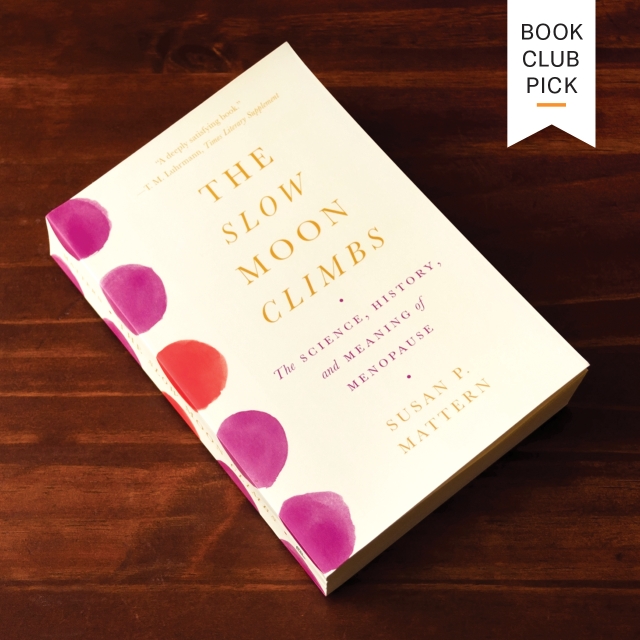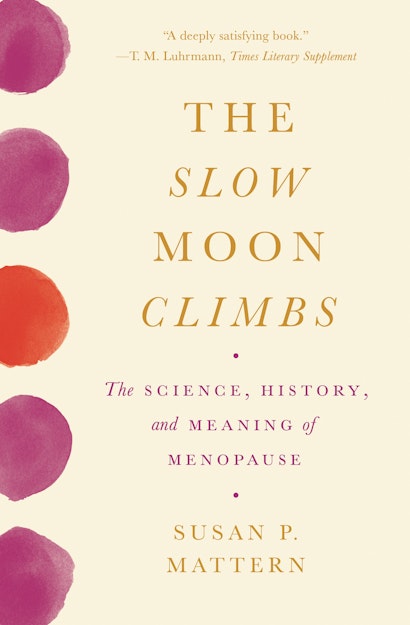Are the ways we look at menopause all wrong? Susan Mattern says yes and, in The Slow Moon Climbs, reveals just how wrong we have been. From the rainforests of Paraguay to the streets of Tokyo, Mattern draws on historical, scientific, and cultural research to show how perceptions of menopause developed from prehistory to today. Introducing new ways of understanding life beyond fertility, Mattern examines the fascinating “Grandmother Hypothesis,” looks at agricultural communities where households relied on postreproductive women for the family’s survival, and explores the emergence of menopause as a medical condition in the Western world. The Slow Moon Climbs casts menopause in the positive light it deserves—as an essential juncture and a key factor in human flourishing.
Discussion Questions
- As Susan Mattern points out in the Prologue to The Slow Moon Climbs, “Menopause only became a subject of medical interest in Europe in the eighteenth century.” Were you surprised to learn this? Did this fact make you more or less receptive to Mattern’s reframing of menopause and its role in human evolution?
- What is the other mammal where the females of the species have long post-reproductive lives? What do the comparison between this mammal and humans elucidate about menopause from an evolutionary biology perspective?
- What is the Grandmother Hypothesis? What is the strongest scientific evidence supporting it, and what questions still remain about it?
- In the opening to Chapter 5, Mattern writes, “In the modern period, non-reproduction has become critical to our future, and more people than ever are non-reproductive or post-reproductive; the energies liberated in this way have transformed our world.” What are some examples either cited in the book, or in your own life of the shifts that have happened a result of this human move away from reproduction?
- What do you make of Friedrich Engels’s theory that the rise of the nuclear family and monogamy for women is linked to the institution of property? Do you think the experiences of women in agrarian societies shaped modern ideas about menopause? If so, how so?
- Hot flashes are synonymous with the modern Western medical and cultural understanding of menopause. How does the history hot flashes, especially their association with plethora—or a buildup of excess blood—in the 1700s, complicate the scientific credibility of hot flashes as a menopausal symptom?
- What is the significance of distinguishing between menopause as a medical versus cultural syndrome? Can you think of other examples of cultural syndromes? After reading The Slow Moon Climbs, do you think menopause is more of a cultural or medical syndrome?
About the Author
Susan P. Mattern is Distinguished Research Professor of History at the University of Georgia. Her many books include The Prince of Medicine and Rome and the Enemy.

